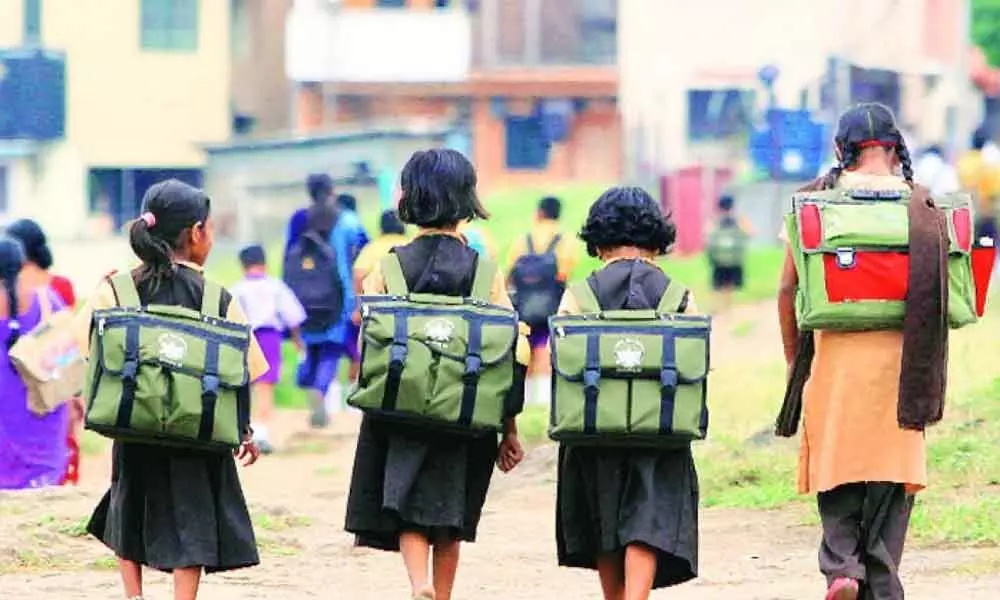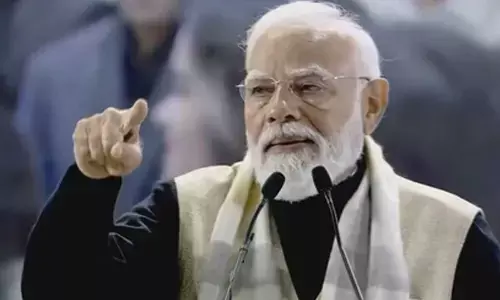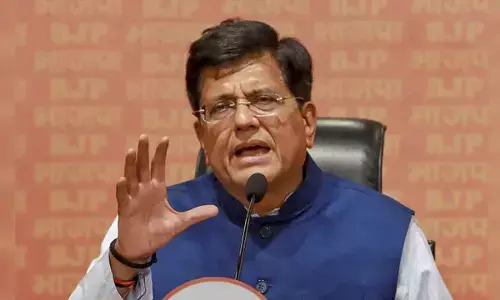Telangana should focus more on school education

The latest ranking of school education quality by government think-tank Niti Aayog, which aims to drive policy reforms in school education that will improve the quality and enhances education outcomes by driving improvements in learning levels, access, equity, infrastructure and governance processes in States.
The latest ranking of school education quality by government think-tank Niti Aayog, which aims to drive policy reforms in school education that will improve the quality and enhances education outcomes by driving improvements in learning levels, access, equity, infrastructure and governance processes in States.
Telangana was ranked 18 among 20 states in terms of overall performance.
In the School Education Quality Index 2019, Telangana has scored 39.0 per cent in the overall performance among the larger 20 states.
The State rank has fallen from 17 (39.3%) to 18 (39.0%) position from 2015-16 (base year) to 2016-17 (reference year), while the Uttar Pradesh and Uttarakhand are the only states that have fared poorer than Telangana.
The performance are broadly classified into two categories — 'Outcomes' and 'Governance Processes Aiding Outcomes' — with sets of indicators determining the performance of states and UTs.
The Outcomes category entails learning, access, infrastructure and equity parameters. While 'learning' parameter deals with the National Assessment Survey scores of Class III, V and VII, 'access' is regarding net enrolment ratio, out of school children and dropouts.
'Infrastructure' comprises rooms, libraries, computers etc while 'equity' deals with difference in transitions rates for boys and girls under general category, SC/ST and OBC students. The Governance Processes Aiding Outcomes category deals with students' attendance and staff of school.
Ensuring equity in learning outcomes is a powerful predictor of the quality of education being provided to the more vulnerable sections of society.
In terms equity in learning outcome Telangana score is around 50 per cent but scored to poor with dropping in infrastructure and facilities outcome where it scored 20 per cent. Access outcome domain is the only area where the State has secured 60 per cent.
The number of single-teacher schools in the State has increased from 11.8 per cent in 2015-16 to 12.6 per cent in 2016-17. In this regard, the report states, "Single teacher schools have an adverse effect on the provisioning of resources, on student learning outcomes and on the supervision of schools."
Recently, there has been a move towards 'Consolidation of Small Schools' to promote a collective effort in increasing the efficiency of resource utilization by schools, leading to higher quality of education and improved student retention.
Across the State, only 68.4 per cent of elementary schools meet the prescribed teacher norms. There is a negligible improvement in parameter from the base year to reference when Telangana had scored 68.0 per cent.
At the secondary school level, the state scored at 43.8 per cent in reference year from 45 per cent in the base year. The shortage of teachers is more rampant in government schools both at the elementary and secondary level.
In single teacher schools, there is 0.8 percent increase in the state and handling 22 subjects in all seven periods for classes 1-5 every day, is a difficult task. It is humanly impossible.
District Level Academic Training Institutions (DIET) is meant to provide academic and resource support at the grassroots level for all programs being undertaken in the area of elementary education.
Both Telugu States have recorded the lowest percentages of filled positions in DIETs are at 19.4 and 36.0 per cent respectively.
RMSA mandates each school to have a minimum of five subject teachers specifically for the core subjects: English, Language, Mathematics, Science and Social Science in TS only 43.6 per cent school has five subject teachers.
The Class 3 scores reflect the quality of foundational learning in a State. This is an important indicator as improvements in foundational learning are positively correlated with improved enrolment, retention and completion rates at higher levels of education as well as with improved labour market outcomes.
Improved outcomes in foundational learning are also related to improved health-seeking behaviour and reduced delinquency.
Among the Large States, average performance on the Class 3 language test is to 79.0 percent for Andhra Pradesh and 68.0 percent for Telangana. In the case of mathematics, average performance is to 74.0 percent for Andhra Pradesh, while for Telangana is 69.0 percent.
How the Index will help States?
♦ The index recognises that school education is a subject on the Concurrent List and that State-level leadership is crucial for improving outcomes in a cost-effective manner.
♦ The index will serve as a regular and transparent review of the status of school education quality across the States and UTs.
♦ The index encourages States/UTs to improve their scores by showing progress across these aspects.
♦ In line with NITI Aayog's mandate to foster the spirit of competitive and cooperative federalism, the index strives to facilitate the sharing of knowledge and best practices across States and UTs.
Gudipati Rajendera Kumar, Hyderabad

















